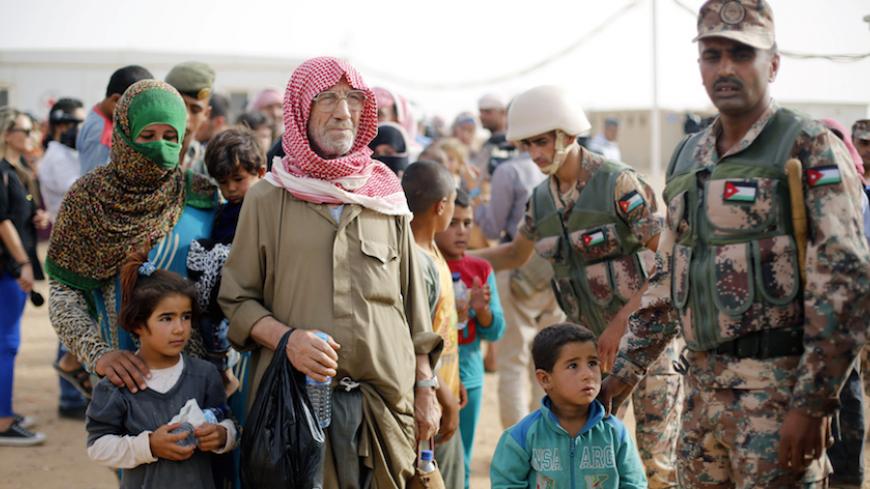AMMAN, Jordan — Even prior to the June 21 car bombing, which killed seven Jordanian forces at the Rukban border crossing with Syria, conditions were dire for the 75,000 asylum seekers trapped in the area on the Syrian side. Children make up over half this population that for months has resided in a scorching desert, which diplomats call "the Berm." Refugees describe their temporary dwellings as being filled with mice and snakes. Malnutrition and diarrhea have also spread widely, according to an international aid official who spoke to Al-Monitor on condition of anonymity.
The refugees' conditions at the Berm deteriorated even more when the Islamic State (IS) staged an attack in the Rukban area June 21. Consequently, Amman tightened its security measures and barred food assistance to Rukban for six weeks while denying the refugees any medical care.



